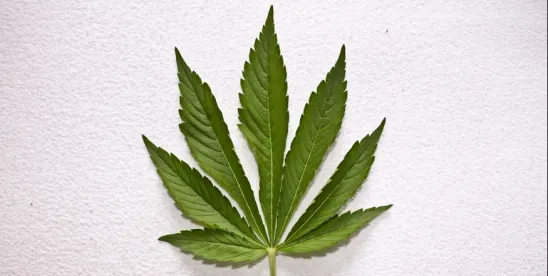The passage of the Illinois Compassionate Use of Medical Cannabis Pilot Program Act, which legalizes cannabis use by sufferers of certain debilitating medical conditions, has created concerns among health care providers, hospitals, health systems, pharmacies, nursing homes and other members of the health care community. Now, with some medical cannabis dispensaries expected to begin operations in the coming weeks, questions regarding the impact on providers have grown more pressing by the day.
To help health care providers better understand their roles and responsibilities under the new Illinois law, we answer some of the most relevant questions below.
RESPONSIBILITIES OF HEALTH CARE PROVIDERS
Are Illinois doctors required to sign recommendations for their patients to use cannabis?
No. A licensed Illinois doctor may use his/her discretion in deciding whether to sign a recommendation for the use of cannabis by a patient. Note that a bona fide physician-patient relationship must exist between the doctor and the patient; where such a relationship does not exist, the physician is not allowed to sign a cannabis recommendation.
What is the difference between a “recommendation” and a “prescription?”
Medical cannabis prescriptions are, in fact, illegal. Cannabis is classified by the federal government as a Schedule I drug, and doctors are unable to prescribe cannabis to their patients. What patients can do, however, is obtain a medical cannabis recommendation from a licensed physician. An Illinois medical cannabis physician recommendation form can be found here.
Must hospitals, clinics or nursing homes allow cannabis use within their facilities?
No. Under state law, a health care facility can allow or prohibit non-smokable cannabis use by patients/residents. The smoking of cannabis, however, is prohibited in all health care facilities under the Smoke Free Illinois Act.
Can a health care provider refuse to admit or treat a patient whose doctor has recommended medical cannabis?
Yes, assuming the patient does not require emergency stabilization. Providers should always be mindful of their ethical and professional obligation to treat those in need of medical attention.
PHARMACISTS AND PHARMACIES
What role do pharmacists have in the medical cannabis program?
Unlike medical cannabis programs in other states, there is no formal role for pharmacists in the Illinois Medical Cannabis Program. However, pharmacists may advise, be employed by, or invest in licensed dispensaries, cultivation centers, research studies or other patient-education programs.
How is the pharmaceutical industry involved in the Illinois Medical Cannabis Pilot Program?
There is a pharmacist representative on the Medical Cannabis Advisory Board. Among its other duties, the board’s primary responsibility is to review, approve or deny petitions for the addition of debilitating medical conditions or diseases to the state’s medical cannabis program.
TREATMENT ISSUES
How should — and can — a health care practitioner track the health of patients who use medical cannabis?
A practitioner with a patient who uses medical cannabis should continue to provide the ordinary standard of care subject to the practitioner's state licensure requirements. There are many resources available to practitioners seeking additional information on proper care and monitoring of medical cannabis patients. Two online resources that can help physicians seeking to track the status of patients using medical cannabis are the Cannabis Training Institute and the Society of Cannabis Clinicians.
What clinical research exists showing the medical benefits of cannabis for patients?
Scientists in the U.S. and abroad have conducted studies on the safety and efficacy of cannabis and cannabis compounds in the treatment of various medical conditions. However, due to longstanding federal government restrictions, there is a shortage of longitudinal peer-reviewed research in the United States.
EMPLOYER CONCERNS
What obligations and prohibitions do employers have regarding employees who are medical cannabis patients?
The intersection of cannabis laws and employment regulations is complex and nuanced. For example, while some states with medical cannabis programs require an employer to provide an "accommodation" for medical cannabis patients, Illinois does not. However, an Illinois employer may not discriminate against a medical cannabis patient solely due to the patient's status as a program participant. Much Shelist’s health care and labor and employment attorneys will dedicate future alerts to the impact of the Illinois program on employers in Illinois.
ILLINOIS LAW IN THE NATIONAL CONTEXT
Where does Illinois fall in the national cannabis industry landscape? Will the Illinois cannabis industry look like the markets in Colorado or Washington, which allow recreational use of cannabis?
The Illinois medical cannabis program is one of the most restrictive regulatory programs in the country, and limits individual usage and industry operations much more than a recreational cannabis state such as Colorado. The Illinois medical cannabis program is a four-year experiment. Illinois government leaders will evaluate a variety of outcomes before deciding whether to restrict, expand or modify the approved uses of cannabis.



 />i
/>i
